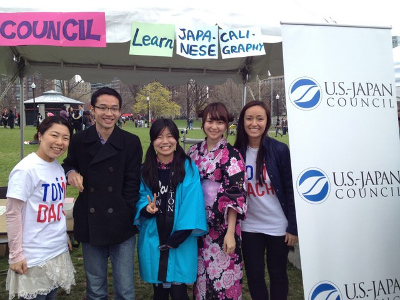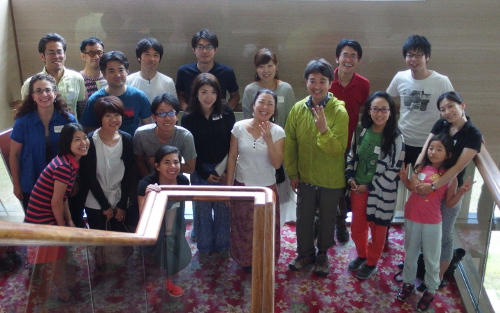Mio Yamamoto
Reflection from Mio Yamamoto (ELP 2014)
They did not teach me Japanese American history
As a Japanese individual who was born and raised in Japan, I learned very little about Japanese American history in school. After I moved to the United States in 2009, I was shocked to learn about the internment. The first time I heard about it was when I watched a film at the New York Peace Film Festival. I thought about the hardship and resilience of those kept in the camps. As a Japanese person living in the U.S., I began thinking about what I can do to reconnect Japanese Americans and Japanese and contribute to a better future.
Crossing boundaries as my core value
Connecting with people by bridging gaps has always been a core value for me. After learning the history of Japanese Americans, applying to the TOMODACHI Emerging Leaders Program (ELP) became a natural next step. I knew very few Japanese people who attended the program in the past, but thought of this as an opportunity to strengthen the relationship between Japanese American and Japanese.
Before departing for Hawaii to attend the program, I asked Margie Yamamoto, Co-President of the New England Japanese American Citizens League, to give me a presentation about her family’s incarceration experience. I was touched by her family’s pioneering and entrepreneurial spirit despite their hardship.
Entering a new community
The several days in Honolulu were an entirely new experience. I had never been spent time with so many Japanese Americans before. I was struck by the diversity of my fellow Emerging Leaders, as well as how much we had in common as Japanese Americans. From time to time, I asked myself, “Who am I? Do I belong here?”. Questioning my identity was a strange experience to me, partly because I lived in Japan for 30 years.
By the end of the Annual Conference, however, we were sitting together on the beach at midnight in Honolulu, sharing a lot about ourselves. I felt connected with them, and very much blessed to be there with my fellow Emerging Leaders and the USJC community, where I can sincerely ask myself who I am and who I want to be.
Co-creating projects with fellow Emerging Leaders and USJC Members
I feel more and more thankful for the ELP experience after the program. I enjoy hanging out with other ELP alumni all over the U.S. and Tokyo. I keep meeting like-minded people at USJC, when attending women networking evenings in Tokyo or organizing the USJC booth at the Japan Festival in Boston.

Furthermore, three ELP alumni from 2014, Jonathan Abbott, Lauren Ohata, and I, are organizing a trip to Tohoku for interested USJC Members to attend after the Annual Conference in Tokyo this November. We are working as a team to bring together different strengths each of us has.

Without ELP, I could have never joined this like-minded yet diverse community. I very much look forward to further deepening and expanding the relationships between the United States and Japan.